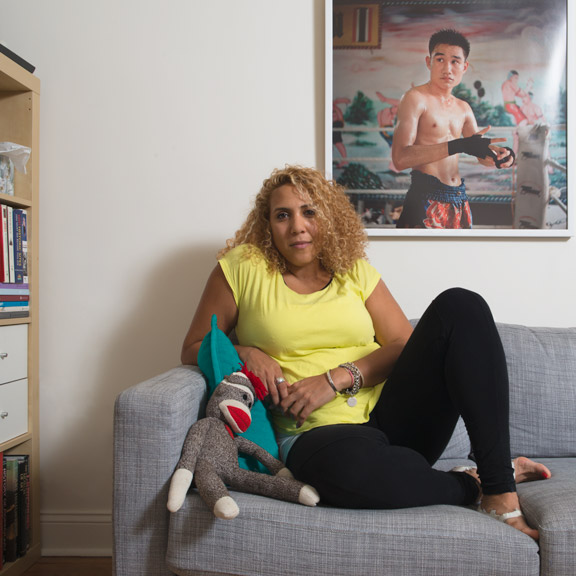I Am Black: Translated

Tiffany Clark
Photojournalist
Born:
Live: New York City
I didn’t grow up in the most diverse setting, majority of my classmates were white and majority of us all knew each other since grade school- so you weren’t really labeled as “the black kid” you were labeled more by more of who you were or what your school activities were “oh tiff, the girl who plays soccer and stuff and is always laughing”. I could “see” that I was different physically but never felt like it was a bad thing. I stood out- I have big curly hair that none of my friends had and yes I did get picked on a bit (but who didn’t when they were kids) but everyone loved my curls so after a while I accepted that my curls were good and my differences as a good thing. I was raised that the color of someone’s skin doesn’t make a person- personality, how you treated someone and your values is what makes a person. My mother is white and my father is black/African American descent. My family is very bi-racial with many interracial marriages, all my friends growing up were a mix of white, Asian, mixed and black, so being a “person of color” never really meant anything to me- call it naïve if you want, but I didn’t see color. Sure, there was some racism that I personally experienced or had instances that I saw racists acts happen (like the multiple times father was pulled over by the cops, assuming he stole his car because he was a Black man driving a Cadillac), but I marked those incidents off as people who were close minded, old and uneducated and those were the ones in the wrong, not us.
It wasn’t till I entered college, and specifically the college application process, that I felt I had to start identifying myself and picking a side- was I “white” or was I “black”? Physically I looked more “black” but I never identified myself as a “real black person” (whatever that meant when I was young) because I didn’t have dark skin color. I was mixed. But when filling out college applications, mixed was not an option like it is today. “Other” was our only choice, and who wants to be identified as an “Other”? Choosing that makes you feel like you don’t exist, that your opinion doesn’t matter, the word “other” in general carries a negative connotation so who would want to identify to that? So I started identifying myself as “black” even though I didn’t know what it meant to be black, or what our culture and society meant to be black.
Throughout college, a number of friends would say “Tiff, you are the whitest black person I’ve ever known” – we would all laugh but deep down it would hurt and I would be so confused- what does that mean? Is that a good thing? Is it because I am educated? Is it because I don’t dress, speak or act a certain way? At the time I was not comfortable with myself enough to stand up and question these remarks, so I just sat there. These days though you have to question when people make remarks like that, not just brush it off- these comments come from people who are mislead by stereotypes and close-minded to the fact that color doesn’t make a person a person and one can never assume something towards someone else.
Today, when it comes to my identity and am asked, I answer proudly that I am mixed: I am half African American and the rest is Croatian and Slovenian. In recent years I have had the unbelievable opportunity to meet my Croatian and Slovenian family and I must say, even though I did not grow up there, I know I am part of those cultures. Same as my African American side, I am just a different version of the original origins, which isn’t that what we all are? I still don’t know what it means to be “black” and I am ok with that; setting specific identities in a way sets you up for stereotypes and being put in a box and who wants that? I do still find myself facing identity and race (not exactly racism) more these days than when I was younger but at the same time I don’t see that as a full on bad thing, I see it as something educational and an opportunity for positive change.
Participants
Previous — Next